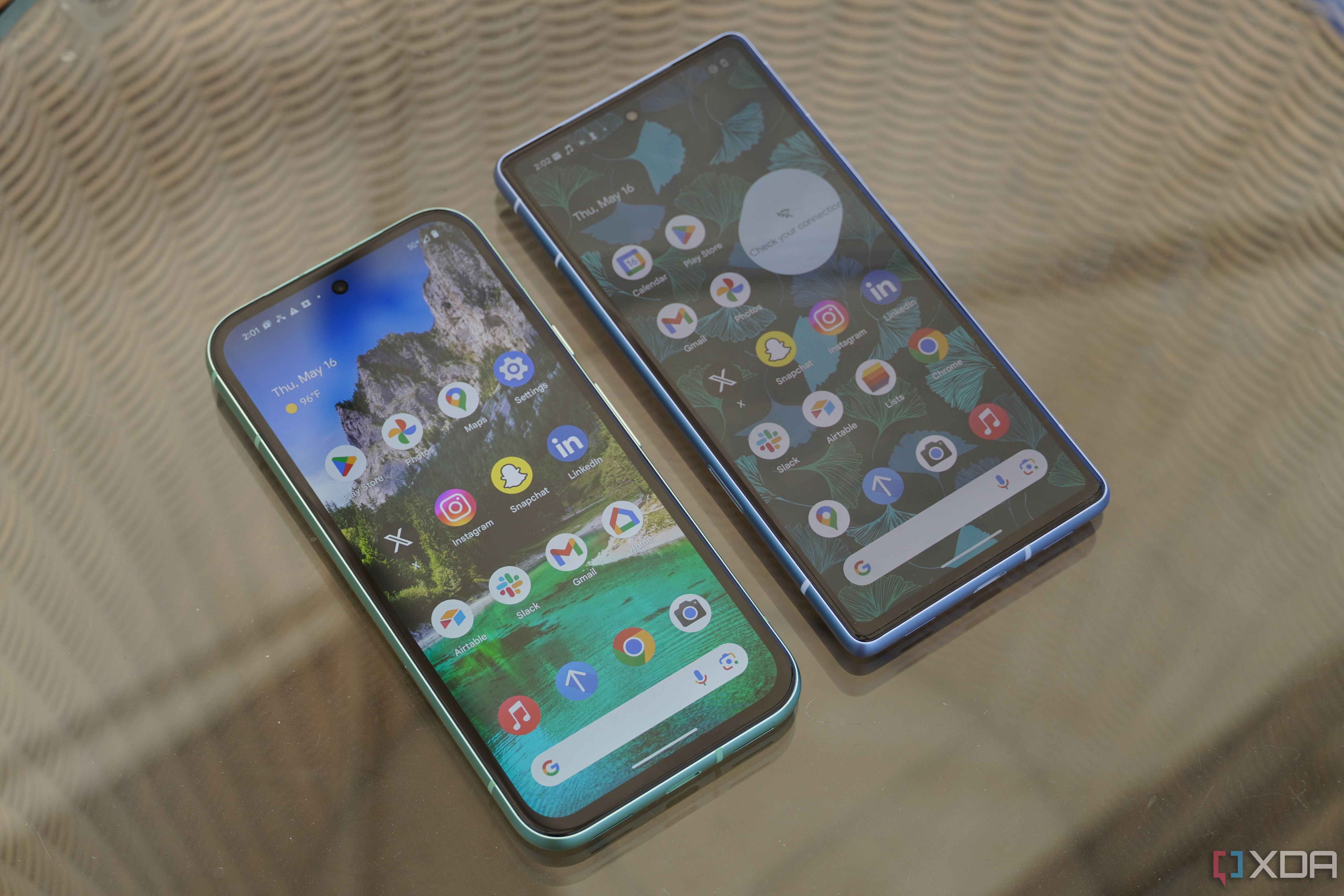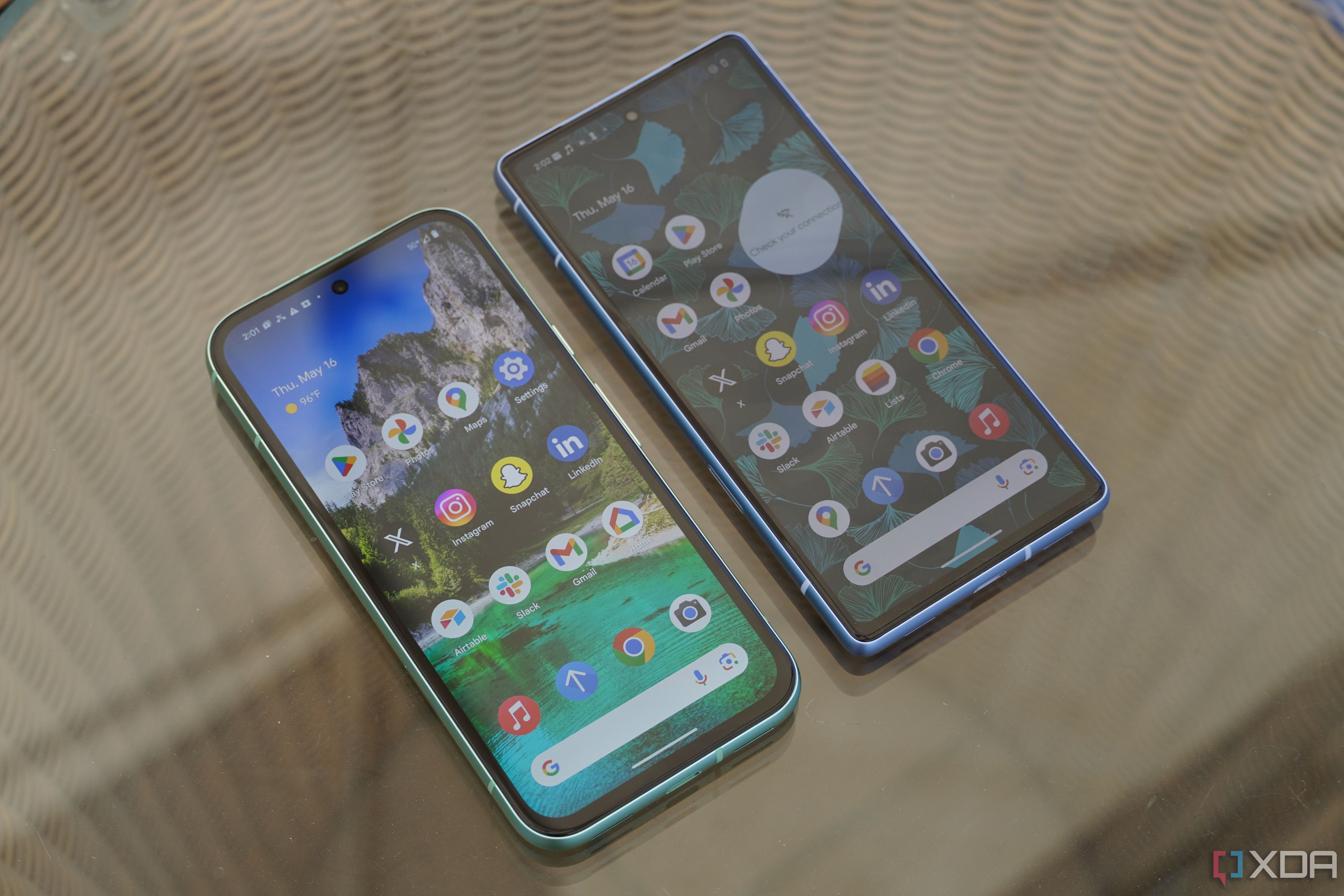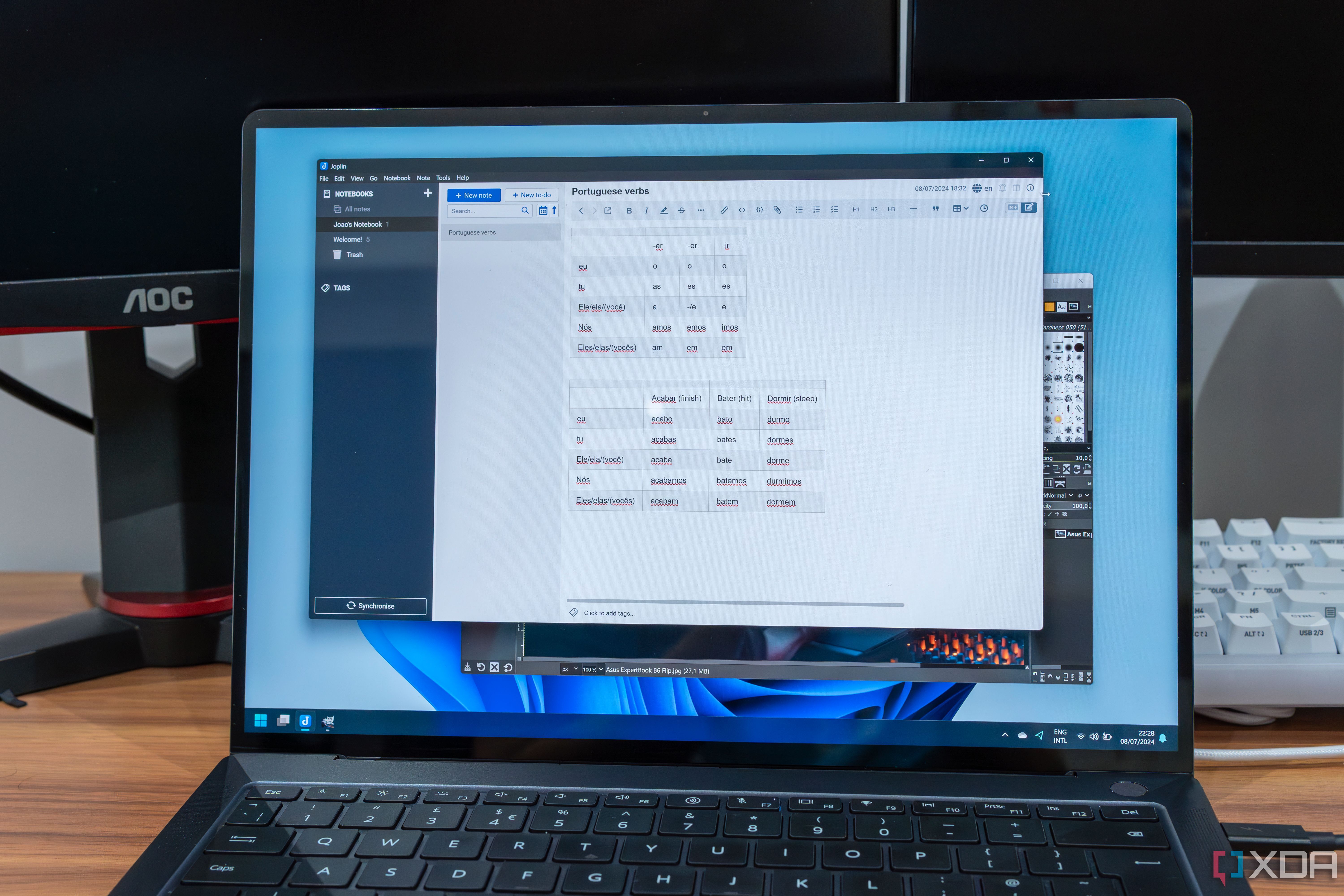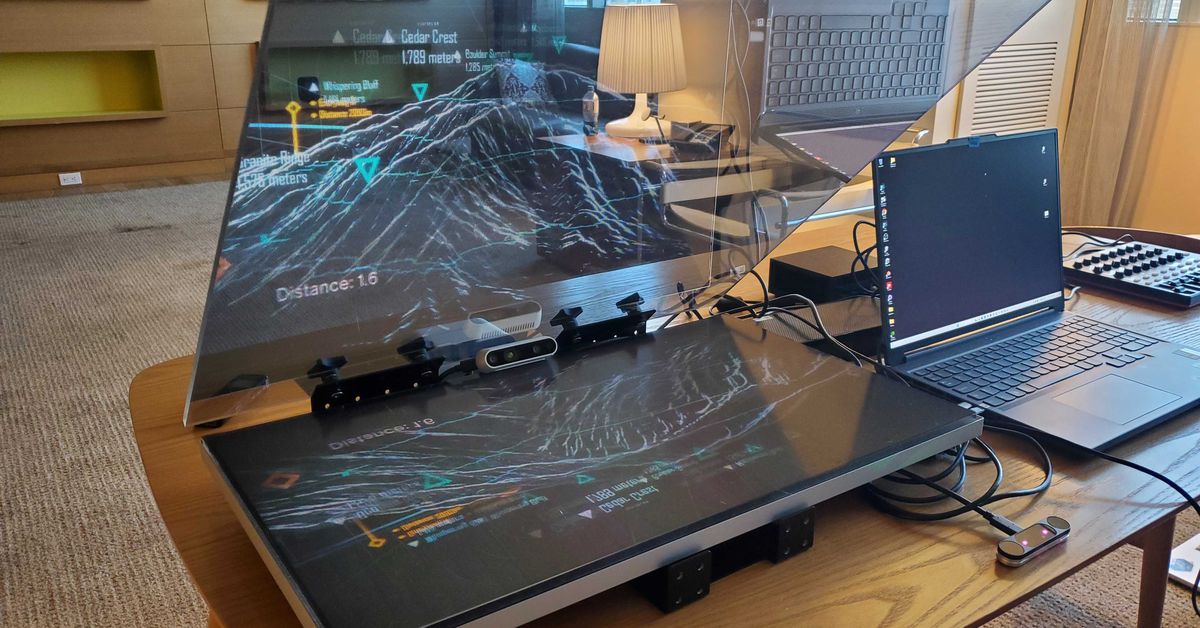While Linux can happily handle that zone as a source of or destination for traffic, most networking equipment deliberately doesn't recognize its existence – and those boxes can't easily be upgraded.
A lot of others do it, that's your argument?
How about not hosting this list in Microsoft's GitHub?
Big spinning wheel would provide a semblance of gravity.
cross-posted from: https://programming.dev/post/19441371
> cross-posted from: https://programming.dev/post/19441320 > > > cross-posted from: https://programming.dev/post/19441267 > > > > > I have a 2nd-gen chromecast, it's factory reset. If i plug it in all it tells me is to install the app to start configuring. > > > > > > I don't have a google account not do i want to install/use google-related stuff on my phone. > > > > > > My home router doesn't register any new device, which makes sense since the cast doesn't know the SSID/pass of the WiFi. > > > > > > Does it try to ping some service/port? Multicast perhaps? Where would it get an IP from without authenticating? > > > > > > My (wired) PC runs gentoo. > > > > > > How can i get it to work in these conditions?
cross-posted from: https://programming.dev/post/19441320
> cross-posted from: https://programming.dev/post/19441267 > > > I have a 2nd-gen chromecast, it's factory reset. If i plug it in all it tells me is to install the app to start configuring. > > > > I don't have a google account not do i want to install/use google-related stuff on my phone. > > > > My home router doesn't register any new device, which makes sense since the cast doesn't know the SSID/pass of the WiFi. > > > > Does it try to ping some service/port? Multicast perhaps? Where would it get an IP from without authenticating? > > > > My (wired) PC runs gentoo. > > > > How can i get it to work in these conditions?
cross-posted from: https://programming.dev/post/19441267
> I have a 2nd-gen chromecast, it's factory reset. If i plug it in all it tells me is to install the app to start configuring. > > I don't have a google account not do i want to install/use google-related stuff on my phone. > > My home router doesn't register any new device, which makes sense since the cast doesn't know the SSID/pass of the WiFi. > > Does it try to ping some service/port? Multicast perhaps? Where would it get an IP from without authenticating? > > My (wired) PC runs gentoo. > > How can i get it to work in these conditions?
I have a 2nd-gen chromecast, it's factory reset. If i plug it in all it tells me is to install the app to start configuring.
I don't have a google account not do i want to install/use google-related stuff on my phone.
My home router doesn't register any new device, which makes sense since the cast doesn't know the SSID/pass of the WiFi.
Does it try to ping some service/port? Multicast perhaps? Where would it get an IP from without authenticating?
My (wired) PC runs gentoo.
How can i get it to work in these conditions?
Nobody claims it was harmless, but it sure was very low on the harmless scale – especially if you compare it with every fear monger's favorite, Chernobyl.
Oh, that.. I think i'm using it but it seems.to expect a response from 80 when all I have there is a redirect to 443.
I thought you meant an nginx plugin.
Although suffering from some technical limitations, Gemini's a rabbit hole of interesting stuff and a breath of fresh air from all the post-<blink> ad-centered js-enabled garbage that has become the WWW.
you can automate the process (e.g. with nginx).
How does nginx automate that?
So the EU's been forcing Apple to allow sideloading and Google goes Nah, it'll be fine?
This does jack-all for security, it's just monopolization in disguise and you're buying into it.
So the EU's been forcing Apple to allow sideloading and Google goes Nah, it'll be fine?
Probably the day of the tentacle.
No, i mean being unable to root my phone, uninstall bloatware, stop having OS updates after x years, etc.
Built-in obsolescence.
Built-in obsolescence.
the spacecraft’s fuel tank.
I thought it used an RTG.
That has a name: built-in obsolescence, and it's bad.
Three hinges! Hinges everywhere... unhinged.
cross-posted from: https://lemmy.world/post/19576214
> >Imagine your car playing you an ad based on your destination, vehicle information—and listening to your conversations. > > >Ford has patented a system that, per the filing, would use several different sources of information to customize ad content to play in your car. One such information stream that this hypothetical system would use to determine what sort of ads to serve could be could be the voice commands you’ve given to the car. It could also identify your voice and recognize you and your ad preferences, and those of your passengers. Finally, it could listen to your conversations and determine if it’s better to serve you a visual ad while you’re talking, or an audio ad when there’s a lull in the conversation. > > >If the system described in the patent knew that you were headed to the mall on the freeway based on destination information from the nav system and vehicle speed, it could consider how many ads to serve in the time you’ll be in the car, and whether to serve them on a screen or based through the audio system. If you respond more positively to audio ads, it might serve you more of those—how does every five minutes sound? > > >But what if the weather’s bad, traffic is heavy, and you’re chatting away with your passenger? Ford describes the system using the external sensors to perceive traffic levels and weather, and the internal microphone to understand conversational cadence, to “regulate the number (and relevance) of ads shown” to the occupants. Using the GPS, if it knows you’ve parked near a store, it might serve you ads relevant to that retail location. Got passengers? Maybe you get an audio ad, and they get a visual one. > > >Given how consumers feel about advertising and in-car privacy, it is difficult to imagine an implementation of this system that wouldn’t generate blowback. But again, the patent isn’t describing some imminent implementation; it just protects Ford’s IP that describes a possible system. That said, with the encroachment of subscription-based features, perhaps it’s only a matter of time before you’re accepting a $20/month discount to let your new Ford play you ads on your commute.
> Anyone with basic knowledge of SQL injection could login to this site and add anyone they wanted to KCM and CASS, allowing themselves to both skip security screening and then access the cockpits of commercial airliners.
DIYer picks a "little insane"-looking setup for less tracking, more control.

Escaping the smart tv doom.
Hunters International says it stole more than 380 gigabytes of data from the federal law enforcement agency and has set an August 30 deadline for a ransom to be paid.

(cross-post from https://programming.dev/post/18621331)
What do you use? I'm looking for as many of the following as possible:
- included battery, preferably rechargeable from the motorcycle's own battery, meaning
- negligible idle consumption
- EU coverage, supporting 3-4 constellations
- 4G+, i provide the e/SIM (i.e. no included plan unless it's grrrreat and cheap af)
- small form factor (for a naked bike)
- privacy-respecting app (preferably not relying on AWS, Google Maps, etc) and/or website
- motion-detection/geofencing
- cheap of course
I had a cheap one from eBay but the chinese-quality app would sometimes lag hours behind - not useful for an eurotrip.
Android runs millions of devices worldwide, but could consumers have reaped the rewards of a more open Android system?

cross-posted from: https://programming.dev/post/17508868
> > When Google, along with a consortium of other companies, announced the open-source operating system we call Android way back in 2007, the world was paying attention. The iPhone had launched the same year, and the entire mobile space was wary of the rush of excitement around the admittedly revolutionary device. AOSP (Android Open Source Project) was born, and within a few years Android swallowed up market share with phones of all shapes and sizes from manufacturers all over the globe. Android eventually found its way into TVs, fridges, washing machines, cars, and the in-flight entertainment system of the Boeing 787 Dreamliner.
Android runs millions of devices worldwide, but could consumers have reaped the rewards of a more open Android system?

> When Google, along with a consortium of other companies, announced the open-source operating system we call Android way back in 2007, the world was paying attention. The iPhone had launched the same year, and the entire mobile space was wary of the rush of excitement around the admittedly revolutionary device. AOSP (Android Open Source Project) was born, and within a few years Android swallowed up market share with phones of all shapes and sizes from manufacturers all over the globe. Android eventually found its way into TVs, fridges, washing machines, cars, and the in-flight entertainment system of the Boeing 787 Dreamliner.
> a digital wallet is a repository for personal data and documents. Right now, there are hundreds of different wallets, but no standard.
> At least a dozen organizations with domain names at domain registrar Squarespace saw their websites hijacked last week. Squarespace bought all assets of Google Domains a year ago, but many customers still haven’t set up their new accounts. Experts say malicious hackers learned they could commandeer any migrated Squarespace accounts that hadn’t yet been registered, merely by supplying an email address tied to an existing domain.
cross-posted from: https://programming.dev/post/16750896
> > The NSA has a video recording of a 1982 lecture by Adm. Grace Hopper titled “Future Possibilities: Data, Hardware, Software, and People.” The agency is (so far) refusing to release it. > > > Basically, the recording is in an obscure video format. People at the NSA can’t easily watch it, so they can’t redact it. So they won’t do anything.
> The NSA has a video recording of a 1982 lecture by Adm. Grace Hopper titled “Future Possibilities: Data, Hardware, Software, and People.” The agency is (so far) refusing to release it.
> Basically, the recording is in an obscure video format. People at the NSA can’t easily watch it, so they can’t redact it. So they won’t do anything.
Open-source software gives you more control and transparency over your experience

Of course if Microsoft undermines standards' interoperability...
Regression in signal handler.
> This vulnerability is exploitable remotely on glibc-based Linux systems, where syslog() itself calls async-signal-unsafe functions (for example, malloc() and free()): an unauthenticated remote code execution as root, because it affects sshd's privileged code, which is not sandboxed and runs with full privileges.
An intriguing prototype with a lot of rough edges.

Ooooh... car BSOD vibes...